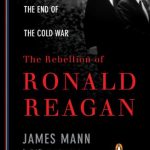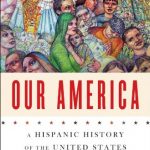Dennis Merrill and Thomas G. Paterson, editors, Major Problems in American Foreign Relations (Houghton Mifflin, 5th edition, 2002). This pathbreaking collection, widely assigned in undergraduate classes, blends primary-source documents with excerpts from scholarly works that take contrasting positions on key interpretive questions. In this way, the book gives students a sense of scholarly debates along with a small amount of original material to use in assessing them.
Jussi Hanhimäki and Odd Arne Westad, editors, The Cold War: A History in Documents and Eyewitness Accounts (Oxford University Press, 2003). As the title suggests, this collection has a relatively narrow chronological focus – just the Cold War years from the 1940s to 1989. But it is admirably broad in other respects, collecting material from numerous countries and blending high-level policy documents with reminiscences by ordinary people.
Michael D. Gambone, editor, Documents of American Diplomacy (Greenwood Press, 2002). This collection contains an impressive 167 documents reaching from the Declaration of Independence to the Clinton presidency. All of the classics of American decision-making are here, making it an excellent choice for anyone trying to track down documents of indisputable significance.
Mark Atwood Lawrence, editor, The Vietnam War: An International History in Documents (Oxford University Press, 2014). Compiled by UT-Austin’s Mark Lawrence, this book collects documents from just a single episode in the history of U.S. foreign relations – the Vietnam War. But it brings together material from the United States with documents from Vietnam, China, and elsewhere.
Jeremi Suri, editor, Foreign Relations of the United States Since 1898 (Wiley-Blackwell, 2010). Compiled by UT-Austin’s Jeremi Suri, this book collects approximately 50 documents, nearly all of them American. It’s one of the best brief collections for classroom purposes.




